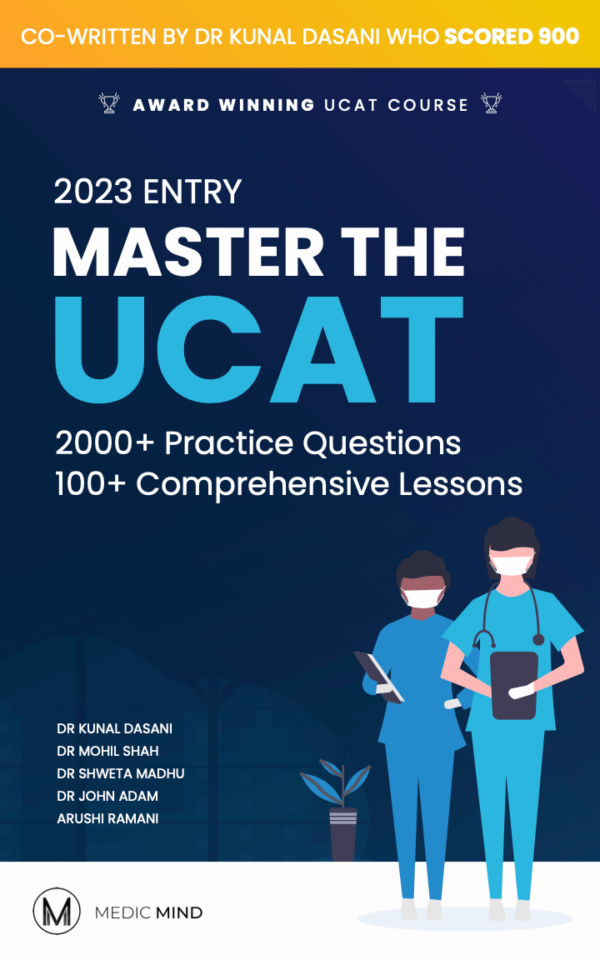Loading...

Parent's Guide: Medical Application
We are so pleased to hear that your child is looking to study medicine, but we know the whole application process can feel really daunting, as there seems like so much you need to do in order to help your child gain a place at the medical school of their choice. Have no fear, it is for this reason that we have created the Medic Mind Parents Guide to Medical Applications. If you’d like more information, check out our upcoming Medic Mind parents’ evenings.
Application Preparation
It is key in being prepared for medical applications, as they are not like a normal university applications. Your child will need to have completed work experience and shadowing of doctors as well as ideally having completed some voluntary work before applying to medical school. On top of this, your child will need to sit entrance exams, write a personal statement, and decide which medical schools they will be applying to. We have written a list of tasks your child will need to complete and in order below, so you can stay on top of the application in supporting your child.

Gain work experience
Gaining work experience in the medical field can be difficult, therefore capitalise on any family connections that you have. Ask any relatives or family friends that work within the medical profession if they would be willing to have your child shadow them. This will give your child a great insight into the medical profession that they need to strengthen their application. Failing this, encourage your child to speak to their career advisor or head of sixth form about gaining work experience. They may have a contact at the local hospital who helps students gain work experience. Alternatively you can encourage your child to contact the education department of your local hospital to arrange work shadowing opportunities. You will need to make sure they do this as early as possible (usually at the beginning of year 12), as spaces shadowing on wards during the holidays get taken early where many students within the local area are planning to apply to medicine or another allied healthcare professional course.
Alternative ways of gaining work experience include volunteering at a local care home or hospice. Other options also include volunteering as a patient visitor at your local hospital or even shadowing behind the reception at a GP surgery. There are also options to travel abroad for unique shadowing opportunities. Companies such as Global Pre-Meds offer some fantastic opportunities that will really make your child’s medical application stand out from the crowd.
Entrance exams
You may have heard of the UCAT and BMAT, if not they are about to become something that you regularly think about. Medical schools require applicants to sit either the UCAT (University Clinical Aptitude Test) or BMAT (BioMedical Admissions Test), in order to help shortlist applicants for interview. Therefore it is essential that your child scores highly in these exams. Check out our UCAS timeline as well as our UCAT and BMAT key dates. The UCAT examination will require your child to register and pick a date, time and test center for the examination, which you may need to take them to. The BMAT on the other hand is usually organised by your child’s sixth-form or college. Encourage them to speak to their careers advisor or exams office who will be able to arrange the examination for your child at either their school or at an alternative local school.
Medical School Open Days
Getting a place at a medical school open day can be quite difficult, more so than you would think. Be sure to check out the different medical school websites to find out the dates and how to apply for a place at the talks. If you are able to travel to them for open days do go along. It is a great way to get a feel for the university as well as to talk to current students. This is beneficial for both your child and yourself as a parent to see how other students have settled in, as well as a chance to check out the facilities on offer and surrounding area. If you are unable to attend an open day, once your child has decided which universities to apply to, or has received interviews for, do go and visit the university. Most campuses are open for you to walk around so you can get a great feel of the university during term time. Although you won’t be able to see the facilities on offer it is still a good idea as your child can say in their interview that they have been to look around the university.
Our Top Tips:
Be supportive
As a parent being supportive of your child’s application to medical school is very important. It can be harrowing when their friends and peers are receiving offers for courses at university and they haven’t even heard back about an interview. Therefore, understanding the application process is a great way of being supportive to your child.
Don’t give up
It can be very disappointing for students who are unsuccessful at interview. This can be very demoralising for applicants, but it is important that you encourage your child to focus on their academics. They may choose to take a gap year after year 13 and work to strengthen their application for the following year, or they may choose to do an undergraduate degree and re-apply as a graduate. Whatever option they pick, don’t let them give up, this is especially true as some medical schools have started putting places (very few) in adjustment for students to apply to on results day for medicine.
Make sure your child is sure medicine is right for them
This would be our biggest top tip. Being a doctor isn’t an easy career with the long training, long hours on the job and little pay, but it is worth it for those who truly love the career and want to be a doctor. Therefore it is essential that your child understands the truth of what a career in medicine entails. By helping them gain work experience they will be able to gain this insight themselves and reach their own decision as to if medicine is right for them or not.
Frequently Asked Question
→What is a medical application?
A medical application is the process of applying to medical school. This involves submitting an application, transcripts, test scores, and other supporting documents to the schools of your choice.
→What are the requirements for applying to medical school?
The requirements for applying to medical school vary by school, but generally include a strong academic record, good test scores (such as the MCAT or BMAT), relevant extracurricular activities, and strong letters of recommendation.
→How can parents support their children during the medical application process?
Parents can support their children during the medical application process by helping them stay organized, providing emotional support and encouragement, and offering guidance and advice throughout the process. It’s also important for parents to help their children manage stress and avoid burnout during the application process.
→How should students choose which medical schools to apply to?
Students should choose medical schools based on factors such as location, cost, curriculum, reputation, and the availability of research and clinical opportunities. It’s important for students to research schools carefully and choose schools that align with their interests and career goals.
→How should parents support their children in choosing which Medical School to apply to?
Choosing which medical schools to apply to can be a daunting process for students. Here are some ways that parents can support their children in this decision-making process:
Encourage your child to research potential medical schools thoroughly. This includes looking at the school’s curriculum, research opportunities, clinical rotations, and faculty.
Help your child consider other factors that may be important, such as the location of the school, the cost of tuition, and the availability of financial aid.
Remind your child to consider their own personal goals and preferences when choosing a medical school. For example, if your child is interested in a specific medical specialty, they may want to look for schools with strong programs in that area.
Provide emotional support and encouragement throughout the decision-making process. Applying to medical school can be stressful and overwhelming, and your child may need your support and reassurance.
Help your child stay organized and on track with deadlines and application requirements. This can include helping them create a spreadsheet of deadlines and requirements for each school, and reminding them to stay on top of their application materials.
Consider hiring a professional college counselor or advisor to help your child with the application process. These professionals can provide expert guidance and support to help your child make informed decisions about which schools to apply to and how to present themselves in their application materials.
Related Articles
Related links
5-day programme with insights into the medical profession. Includes accommodation and ALL meals!
5-day programme with insights into the dental profession. Includes accommodation and ALL meals!
Personalised lessons, tailored to individual needs





Was this article helpful?
Still got a question? Leave a comment
Leave a comment